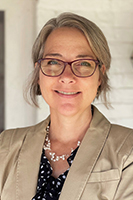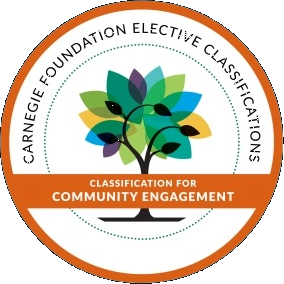Tuesday, November 18, 2025
10:00-11:30 a.m. | Zoom
Interested in learning how to develop new partnerships in the arts and cultural digital humanities? Are you new to working with digital humanities centers as partners in fostering community-engaged social change? Join this Creative Conversation to explore how to create a collaborative and sustainable project by using digital tools to build a dynamic digital repository for research and community engagement.
This collaborative workshop will focus on two projects: Enslaved: Peoples of the Historical Slave Trade, led by MSU’s Matrix: Center for Digital Humanities & Social Sciences and the Michigan Stained Glass Census, led by the Michigan Traditional Arts Program.
The teams will explain the project origins, mutually beneficial outcomes, lessons learned, strategies for sustainable collaboration, and unexpected outcomes. Attendees will learn about the advantages of collaborating with community partners, the basics of community-engaged digital research, and how to build partnerships and foster community engagement. Participants will also be able to join a growing network of campus colleagues who are leading innovative arts and cultural creative community-engaged partnerships.
Presenters

Walter Hawthorne
Director, Matrix
Professor, Department of History
MSU College of Social Science

Sara Bon-Harper
Executive Director, James Monroe’s Highland
William & Mary

Marsha MacDowell
Director, Michigan Traditional Arts Program
MSU University Outreach and Engagement

Leslie Pielack
Director, Birmingham Museum
Member, Michigan Historical Commission
Moderator

C. Kurt Dewhurst
Director for Arts and Cultural Initiatives
Office for Public Engagement and Scholarship
University Outreach and Engagement
Project Descriptions
Enslaved: Peoples of the Historical Slave Trade
In 2020, Matrix at Michigan State University launched Enslaved: Peoples of the Historical Slave Trade and the Journal of Slavery and Data Preservation. Enslaved.org publishes machine-readable datasets with a host of information about named enslaved individuals, many previously lost to history. Contributors to the project include William & Mary’s Highland, the home of James Monroe, fifth president of the United States. Highland’s mission is to engage the public in learning about U.S. history through inclusive narratives of the people who lived on the property, with a focus on the period of Monroe’s ownership.
Michigan Stained Glass Census
The Michigan Stained Glass Census, begun in 1992, is an ongoing statewide arts and humanities project coordinated by the Michigan Traditional Arts Program. Using census forms developed at MSU, citizen-scholars photograph and collect information about architectural stained glass windows, the artists who made them, and the buildings in which the windows are located. The data is made digitally accessible through an online portal administered by MSU’s Matrix. The physical collections (tools, bulletins for church services held to dedicate the windows, church histories, artist drawings, etc.) associated with the Michigan Stained Glass Census are housed at the Michigan State University Museum.









